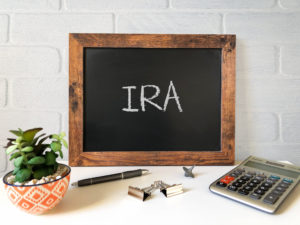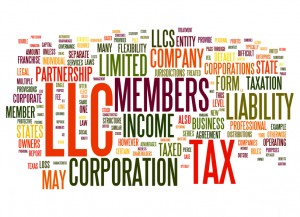
Do you own a second home or vacation property? Is it located in a state other than the state in which you live? Without the proper planning, dealing with the home or property upon your death can become a very expensive matter.
Ancillary Probate
Often times, a probate proceeding is required in order to deal with the disposition of real estate and other assets upon a person’s death. If the deceased person owned real estate in more than one state, a probate proceeding may be required in each state where such properties are located. Often times, a probate must be started in a person’s home state, (where he or she resided), and an additional probate proceeding, known as an ancillary probate, must be started in each of the other states where the person owned real estate. This process can result in the need to hire an attorney in each state where a probate proceeding is required, potentially resulting in significant and unexpected legal fees and expenses. Continue reading


 On December 20, 2019, President Trump signed into law the “Setting Every Community Up for Retirement Enhancement Act” (the SECURE Act). This new law changes how IRAs and certain other retirement benefits must be treated after death. These changes are significant, and they may affect your existing estate plan.
On December 20, 2019, President Trump signed into law the “Setting Every Community Up for Retirement Enhancement Act” (the SECURE Act). This new law changes how IRAs and certain other retirement benefits must be treated after death. These changes are significant, and they may affect your existing estate plan. Land Contract
Land Contract When someone dies, the disposition of their personal items, heirlooms and keepsakes are often the greatest source of contention among their surviving family members. However, during their lifetime many people fail to make arrangements to direct how those personal items should be distributed upon their death. Sometimes they make verbal assurances to certain family members during their lifetime, promising to leave them certain items upon death, but those promises are never put into writing. In order to avoid conflicts over the distribution of such items, and possibly avoid a lifetime of hard feelings between surviving relatives, it’s important to properly address these issues in your estate plan.
When someone dies, the disposition of their personal items, heirlooms and keepsakes are often the greatest source of contention among their surviving family members. However, during their lifetime many people fail to make arrangements to direct how those personal items should be distributed upon their death. Sometimes they make verbal assurances to certain family members during their lifetime, promising to leave them certain items upon death, but those promises are never put into writing. In order to avoid conflicts over the distribution of such items, and possibly avoid a lifetime of hard feelings between surviving relatives, it’s important to properly address these issues in your estate plan. As people get older it’s a natural desire to help their children financially, or perhaps make gifts to their grandchildren or other family members. But that generosity may later affect their eligibility for Medicaid benefits if they ever need long-term care.
As people get older it’s a natural desire to help their children financially, or perhaps make gifts to their grandchildren or other family members. But that generosity may later affect their eligibility for Medicaid benefits if they ever need long-term care. In a past Estate Planning post I discussed how beneficiary designations can be an effective tool to avoid Probate upon death. As a Wisconsin Estate Planning Attorney I often use a type of beneficiary designation to pass a home or other real estate to a person’s family members when that person dies. This beneficiary designation is established with a properly drafted Transfer on Death Deed, also known as a TOD Deed. A TOD Deed allows the owner of real property to execute a deed during his or her lifetime, which names the beneficiary or beneficiaries who will receive title to the property upon the owner’s death. This allows the real estate to be transferred to the beneficiaries without them having to go through the probate process.
In a past Estate Planning post I discussed how beneficiary designations can be an effective tool to avoid Probate upon death. As a Wisconsin Estate Planning Attorney I often use a type of beneficiary designation to pass a home or other real estate to a person’s family members when that person dies. This beneficiary designation is established with a properly drafted Transfer on Death Deed, also known as a TOD Deed. A TOD Deed allows the owner of real property to execute a deed during his or her lifetime, which names the beneficiary or beneficiaries who will receive title to the property upon the owner’s death. This allows the real estate to be transferred to the beneficiaries without them having to go through the probate process.  As an
As an 
 Beneficiary Designations to Avoid Probate can be a Great
Beneficiary Designations to Avoid Probate can be a Great  So you’re starting a new business? It can’t be that difficult…can it? You do the research and decide that a Limited Liability Company (LLC) is the best entity for your new venture. You may event go online and register your new entity with proper state agency. But use caution. Before you open the doors of your new business be sure you consult with a qualified Business Law Attorney to ensure that you’ve covered all the bases.
So you’re starting a new business? It can’t be that difficult…can it? You do the research and decide that a Limited Liability Company (LLC) is the best entity for your new venture. You may event go online and register your new entity with proper state agency. But use caution. Before you open the doors of your new business be sure you consult with a qualified Business Law Attorney to ensure that you’ve covered all the bases.